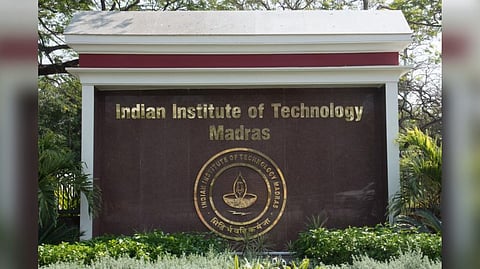

CHENNAI: Researchers of Indian Institute of Technology-Madras (IIT-M), Jadavpur University and Northwestern University found that controlling aerosolisation of mucus and vaccination can help prevent serious outcomes of Covid-19 infection.
Through the mathematical models, researchers have shown how viruses infecting mucous lining of the respiratory tract spread as droplets into the lungs, thereby causing serious illnesses and recommend ways to prevent such spread.
According to the researchers, the findings of the research aremedicines to control sneezing and coughing can help prevent the formation of infected mucous droplets in the nose and throat and their transmission into deep lungs, and vaccination can help in preventing the development of pneumonia and other such serious lung diseases.
Researchers across the world are putting in efforts to find how the Covid-19 virus spread from nose and throat to lungs. Subsequently, some of the ideas suggested are virus moving through mucus in the respiratory system or the virus entering the bloodstream and traveling to the lungs and another theory is that people might inhale mucus droplets containing the virus deeper into the lungs through the nose and throat.
Elaborating on this research, Mahesh Panchagnula, professor at Department of Applied Mechanics, IIT Madras, said, "We examined the last theory through mathematical modelling of droplets moving from the nose and throat to the deep lungs. Our model showed that pneumonia and other lung distress can occur within 2.5 to 7 days after the first symptoms of a Covid-19 infection occur. This happens when the infected mucous droplets are transported from the nose and throat to the lungs."
Meanwhile, Aranyak Chakravarty, assistant professor, School of Nuclear Studies and Application, Jadavpur University, said, "There was another important finding of this work. Our studies also show that while the transport of infected mucous droplets in the airway plays an important role, the infection growth and seriousness also depend upon the immune response of the infected person."
Lastly, Neelesh Patankar, professor, Northwestern University, added, "This finding reinforces the importance of vaccination in preventing severe infection. Vaccines help the body make special cells called B-lymphocytes and T-lymphocytes (or memory cells). T− lymphocytes suppress virus multiplication. B lymphocytes generate antibodies that destroy the virus."
Visit news.dtnext.in to explore our interactive epaper!
Download the DT Next app for more exciting features!
Click here for iOS
Click here for Android